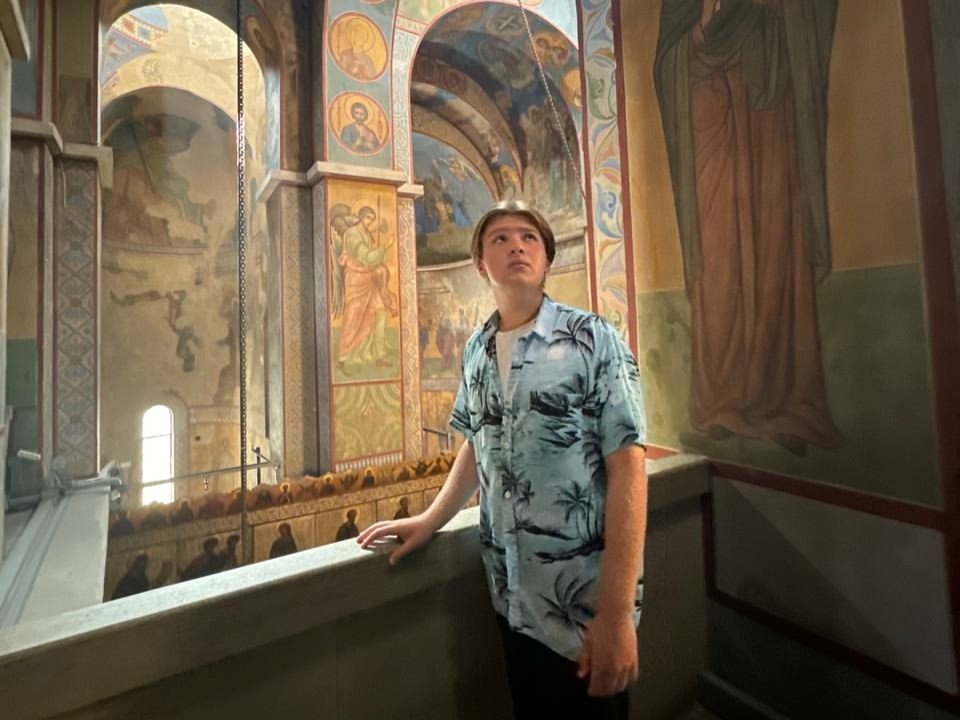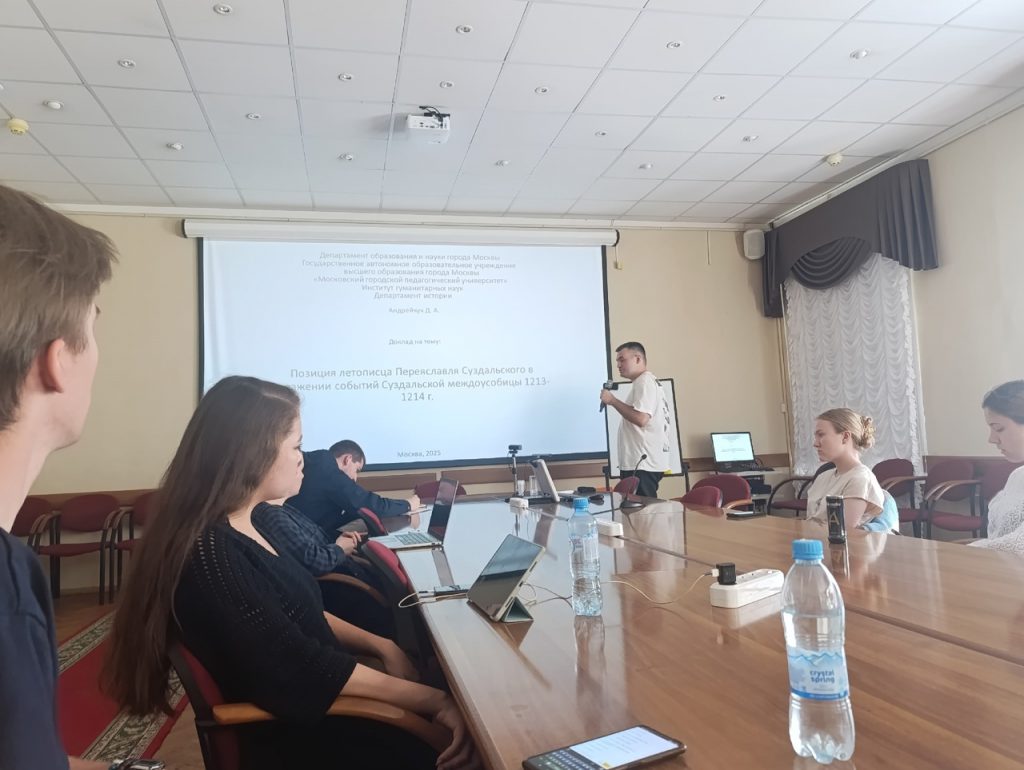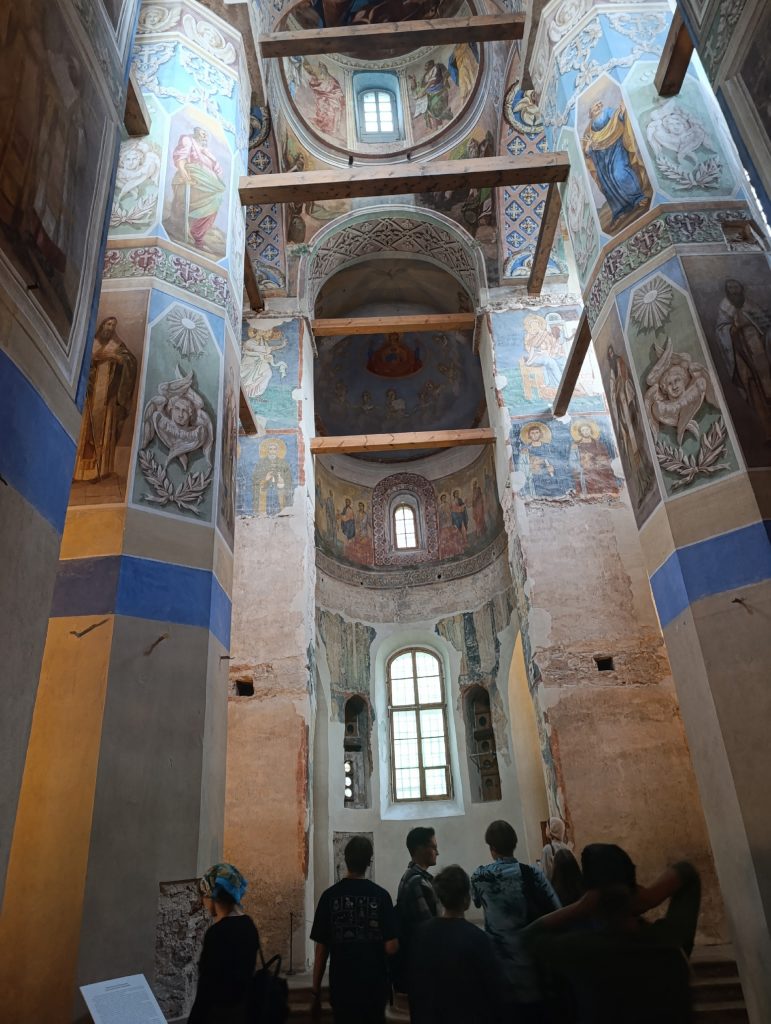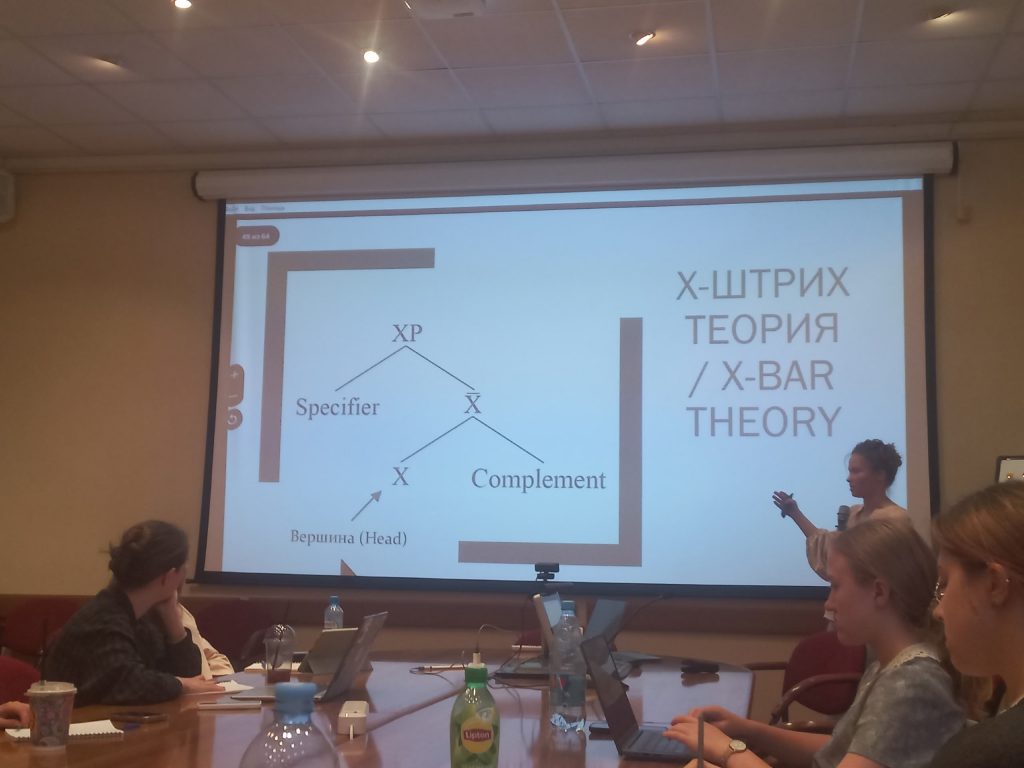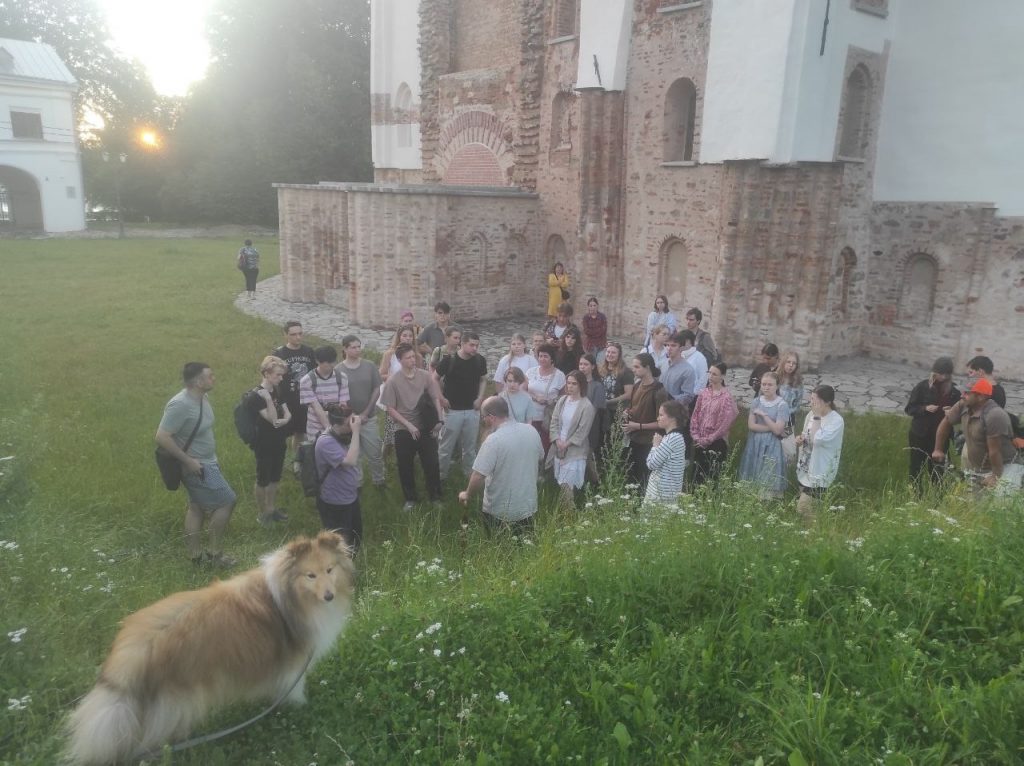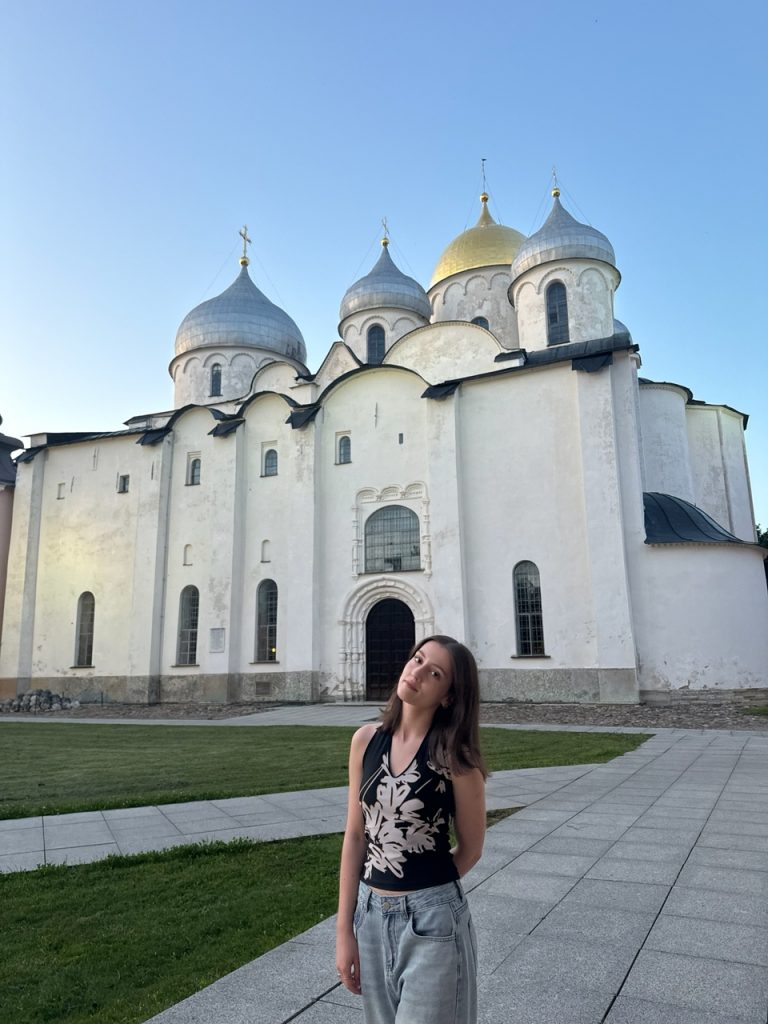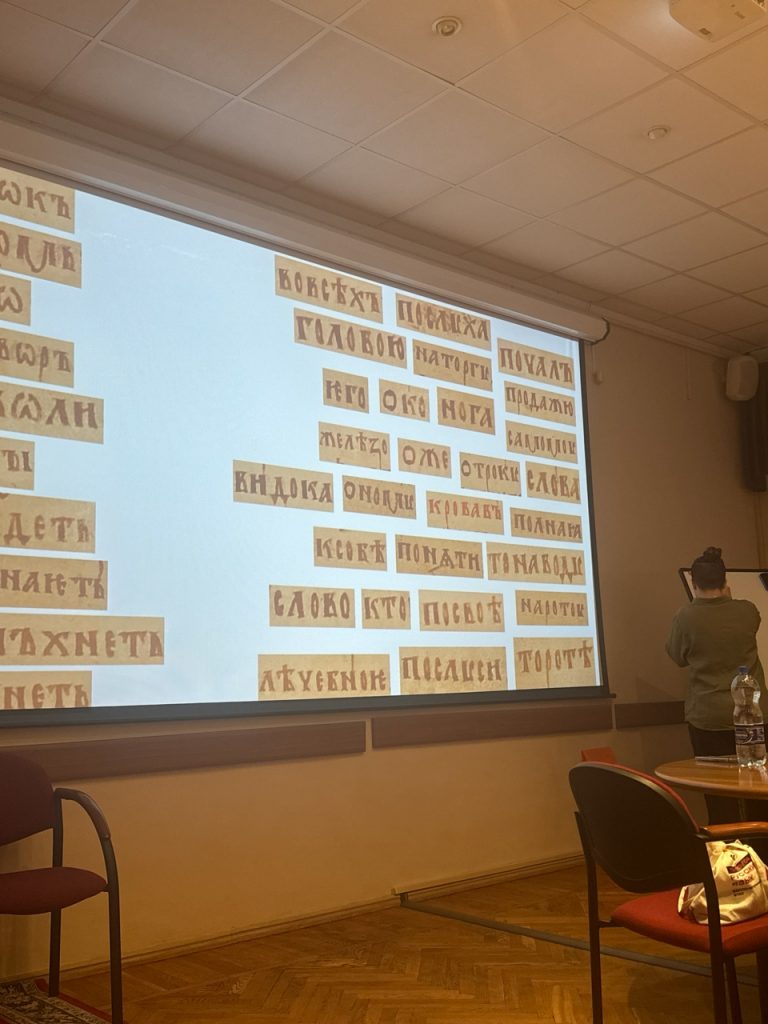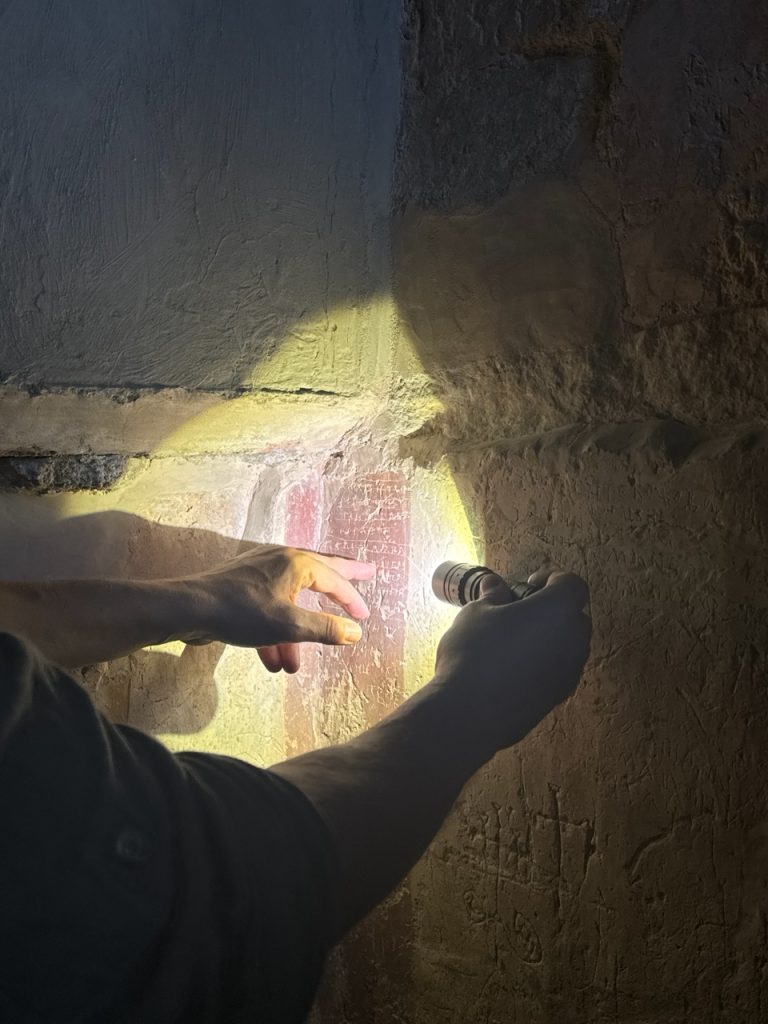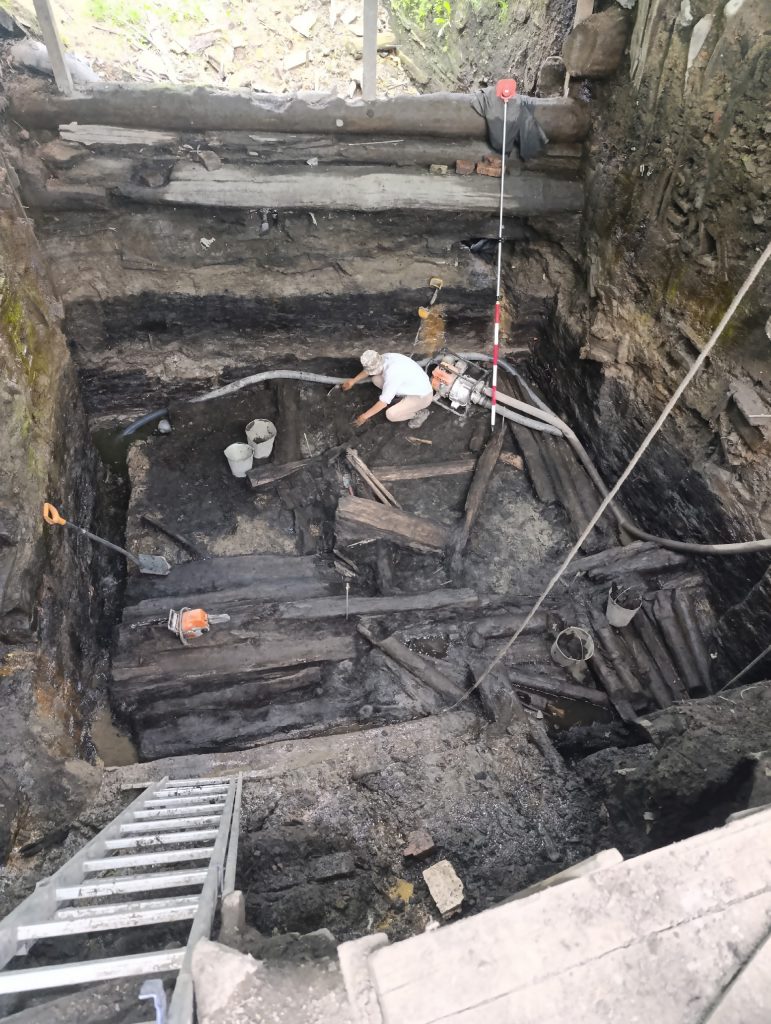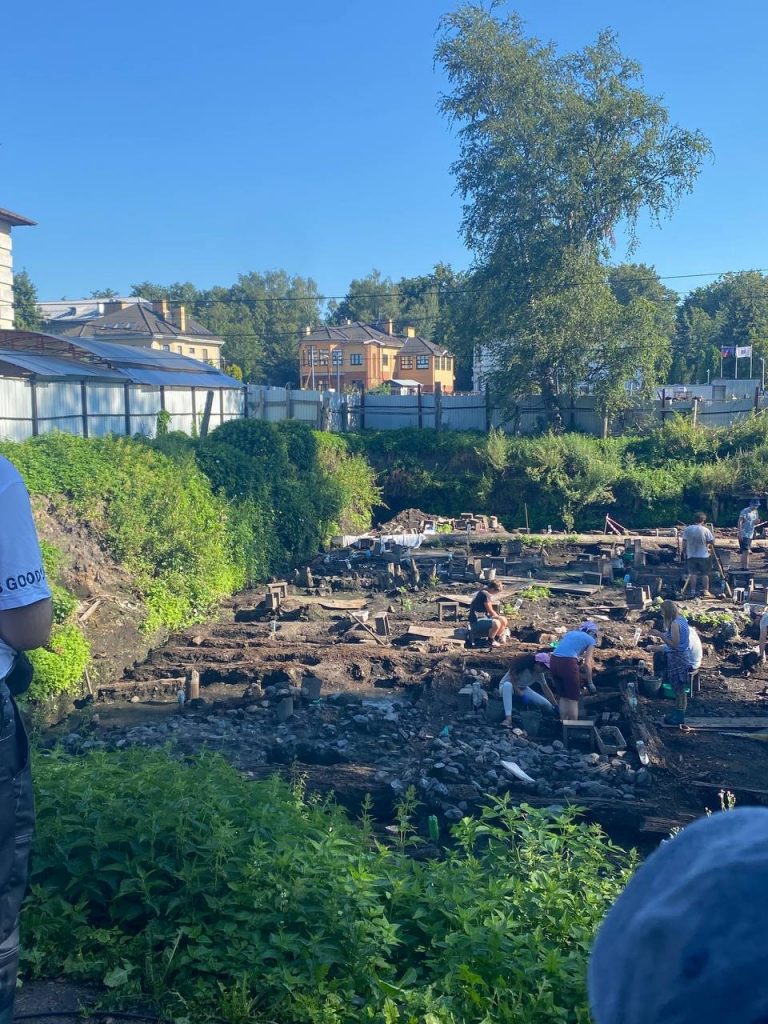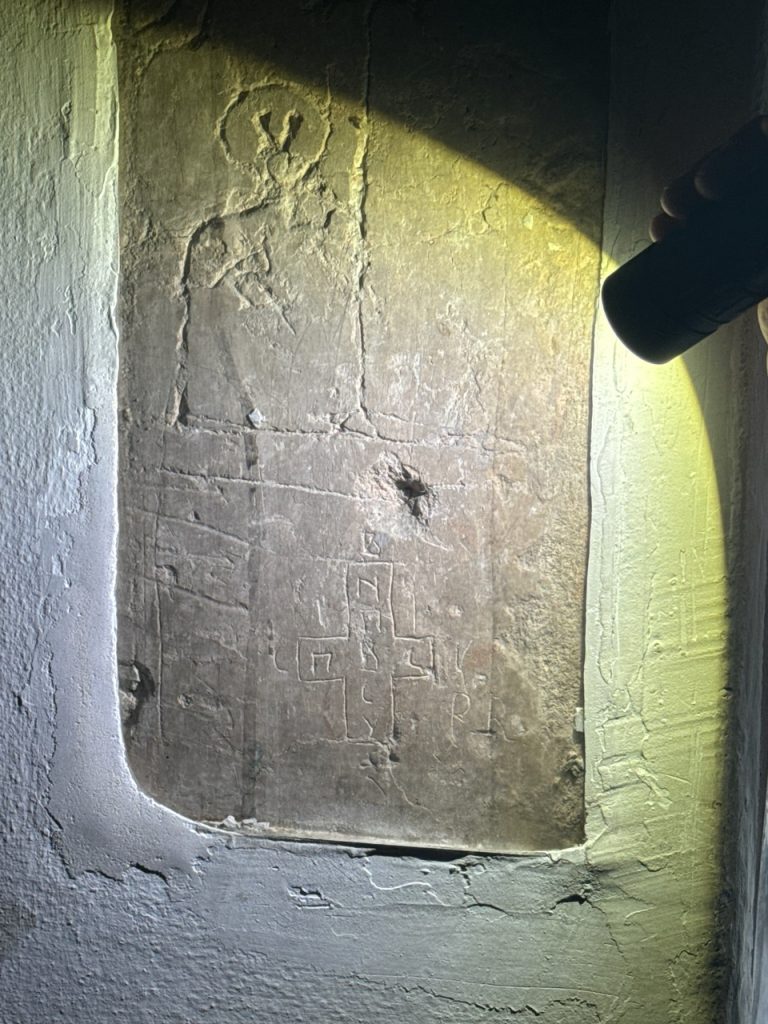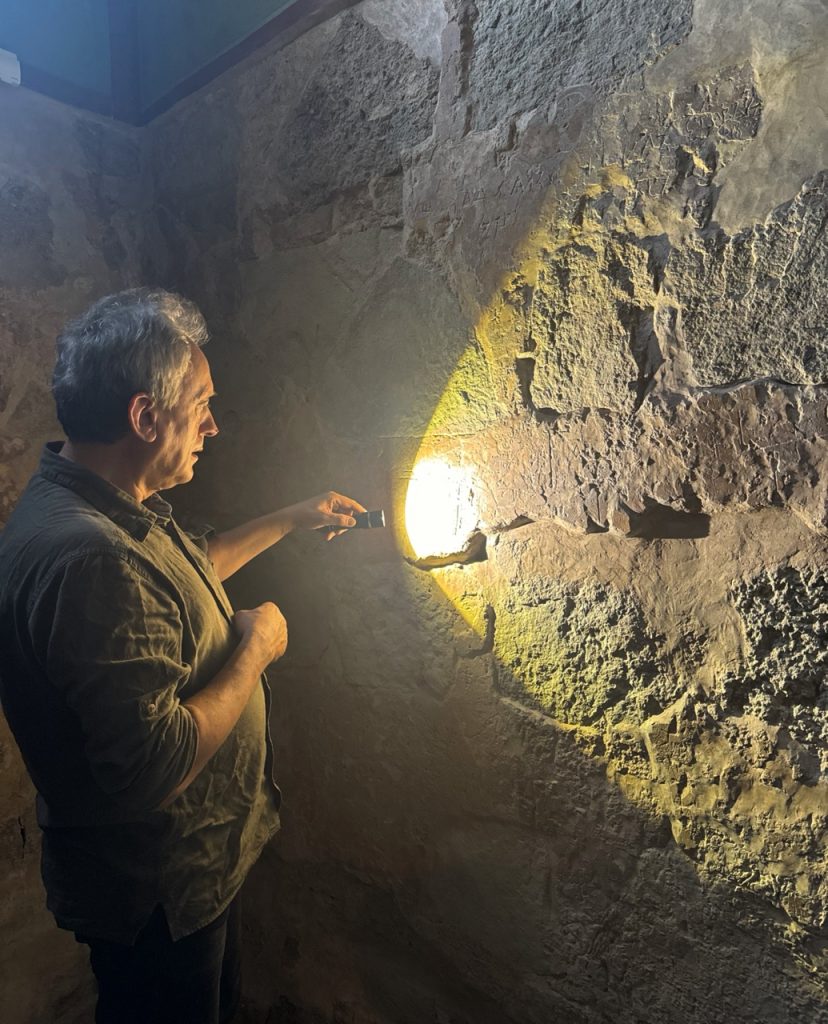Students of the Institute of Humanities at Moscow City University participated in the summer interdisciplinary school on the history of Rus’ in Veliky Novgorod. The educational and outreach events, initiated by young researchers from leading Moscow academic institutions, took place from August 3 to 10, 2025.
The students joined archaeological excavations at the Troitsky dig site, attended seminars on the language, history, writing, and art of medieval Novgorod, and listened to lectures by Academician Alexei Gippius (Vinogradov Institute of the Russian Language, Russian Academy of Sciences; Higher School of Economics) and Professor Pavel Lukin, Corresponding Member of the Russian Academy of Sciences (Institute of Russian History, RAS).
MCU delegation included four history students of the Institute of Humanities: Nelli Mzhavia, Dmitry Lozovich, Denis Andreychuk, and Egor Tsaplin.
They tried their hand at archaeological fieldwork, explored the key artistic monuments of medieval Novgorod, learned about the peculiarities of Old Russian stress and syntax, and worked with Old Russian texts — birchbark letters and chronicles. Denis Andreychuk presented his research paper “The Position of the Pereyaslavl-Suzdal’ Chronicler in Reflecting the Events of the Suzdal’ Feud of 1213–1214.” The work was highly praised by Academician Alexei Gippius.
The school was organised thanks to the efforts of Anna Fitiskina (Junior Research Fellow, Vinogradov Institute of the Russian Language, RAS), Nadezhda Sedukova (Curator of the Department of Rare Books and Manuscripts, Lomonosov Moscow State University Research Library), Dmitry Krylov (PhD student and Junior Research Fellow, Vinogradov Institute of the Russian Language, RAS), and Georgy Titov (Research Intern, Higher School of Economics).
Students’ impressions of the summer school:
“I had never been to Veliky Novgorod before. I really liked the city — its beauty, cleanliness, and tranquility, its concentration of Old Russian architecture. It was fascinating not just to look at the churches and cathedrals, but to listen to the guided tours, to read the graffiti on the walls of St. Sophia. It was truly breathtaking, especially because we did it together with A. A. Gippius. The lectures were very rich, sometimes difficult due to philological details (for the first time I heard about generativism, palatalisation). But we were given an extensive base of additional literature. It is wonderful to be surrounded by people who are so passionate, many of whom already know the field they love. My own research interests are just beginning to take shape, and unfortunately, I cannot yet say for certain what I would like to specialise in. I hope that in my second year I will have a clearer direction.” — Nelli Mzhavia
“The teaching staff made an effort to present Novgorod from every angle: the excavation site, architecture, chronicles, dialect, political system, epigraphy, and birchbark manuscripts. I broadened my horizons in understanding the history of medieval Novgorod and Rus’ as a whole.” — Dmitry Lozovich
“Sadly, the Novgorod summer school has come to an end. The experience was invaluable, and the organisers did an excellent job. The lectures by Alexei A. Gippius and Pavel V. Lukin left a deep impression. In addition to classes in the museum’s conference hall, we also had field lectures. For example, we learned about the Yaroslav’s Court complex from a very knowledgeable local historian. I also really enjoyed the city itself. My colleague Egor Tsaplin described it perfectly: ‘Novgorod doesn’t try to seem bigger than it is.’ I agree. The buildings that have survived since the republican era inspire awe in me as a medievalist.” — Denis Andreychuk
Photo: the archive of MCU students.

